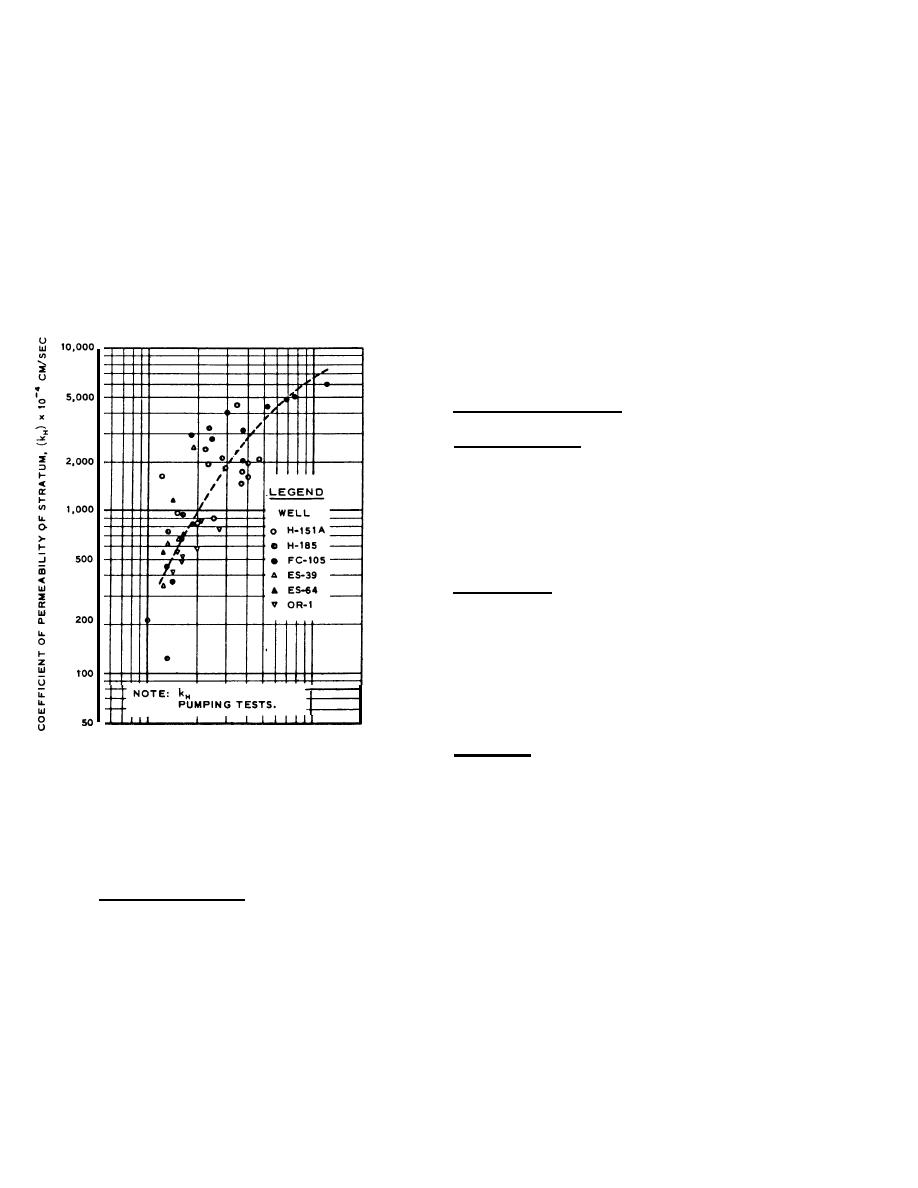
TM
5-818-6/AFM
88-32
most suitable mixes and probable quantities of grout, if the rock takes grout.
Although recommended for the purpose stated, test grouting is seldom con-
sidered necessary if only cement grouting of rock is involved. Collective
experience from scores of jobsites where cement grouting was performed in
widely varying subsurface situations indicates that cement grout can be in-
jected if one or more of the conditions listed in paragraph 3 has been found
in preconstruction investigations. Test grouting of soils with chemical grout
coupled with exploratory trenches and pits to observe the results is very
helpful in estimating costs and effectiveness, and on large jobs may allow a
considerable saving of costs to be made if representative areas are tested.
By varying grouting techniques, optimum spacing of holes, pressures, in-
j e c t i o n rates, and setting times can be ascertained for each major set of
conditions.
This permits obtaining
satisfactory coverage with minimum
quantities of drilling and grout.
Laboratory
Tests.
c.
( 1 ) Permeability. Test proce-
dures for determining the permeability
of soil samples are described in
EM 1110-2-1906. Laboratory perme-
abilities are generally somewhat
smaller than field permeabilities de-
termined from field pumping tests.
( 2 ) Gradation. P r o c e d u r e s for
p e r f o r m i n g grain-size tests are given
in
EM
1110-2-1906.
The
effective
g r a i n size (D 10 size) of Mississippi
River alluvial sands has been corre-
lated with field permeability values
1
and the results of this correlation are
BAsED ON FIELD
shown in figure 1.
0.05
0.5
0.1
1.0
0.2
2.0
( 3 ) Density. The density and void
EFFECTIVE
GRAIN
SIZE
OF
STRATUM
MM
ratio of undisturbed samples should be
(From "Investigation of Underseepage and its Control,
Lower Mississippi River Levees, " TM 3-424, Vol 1,
determined for use in making calcula-
Ott 1956, U. S. Army Eng. Waterways Exp. Sta.)
tions and in evaluating the stability and
Figure 1. D 1 0 versus in situ coef-
permeability characteristics of the in-
f i c i e n t of permeability-Missis -
p l a c e soil mass. T e s t procedures are
sippi River Valley Sands
o u t l i n e d in EM 1140-2-1906.
( 4 ) Chemical tests. Chemical analysis of groundwater samples should be
made to determine the presence of calcium sulfate, magnesium sulfate, sod-
ium sulfate, organic or mineral acids, and alkalies that may be detrimental
to cement or chemical grouts. The pH of the water should also be determined.
6



 Previous Page
Previous Page
